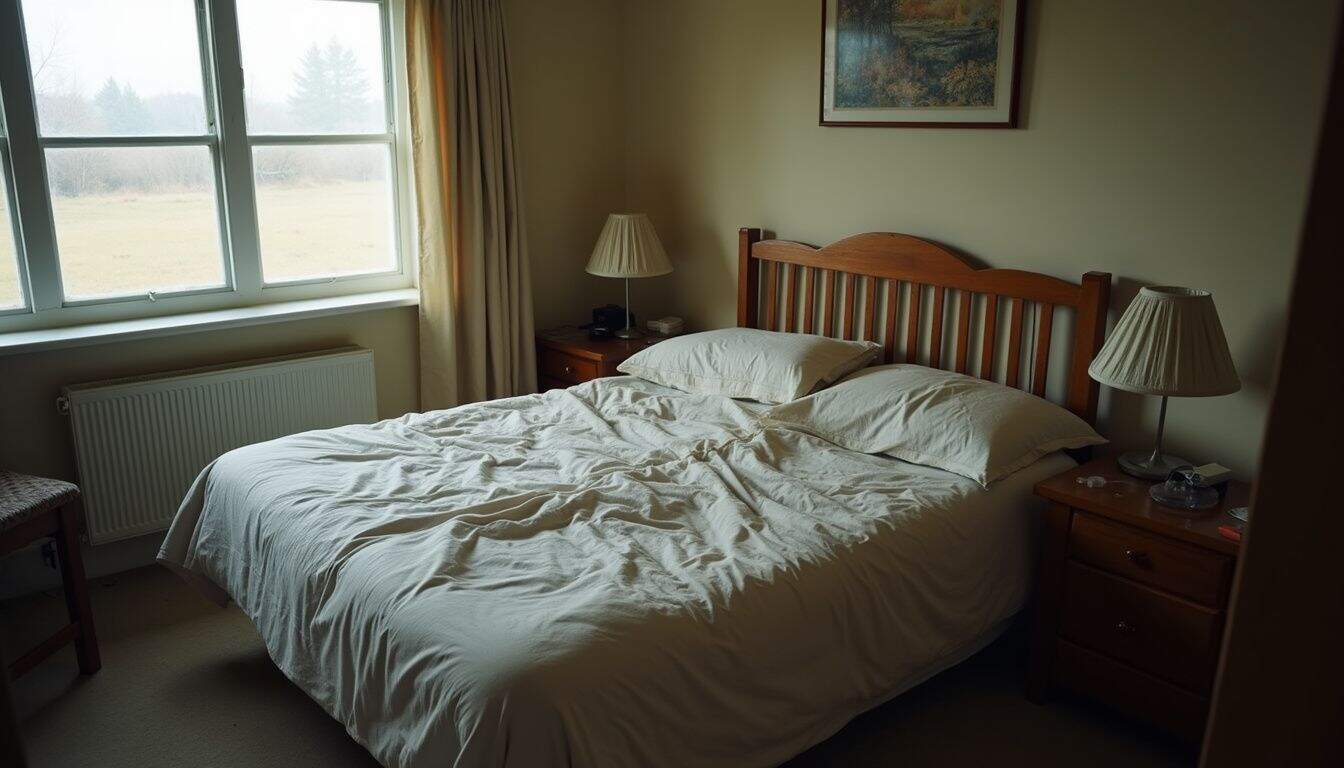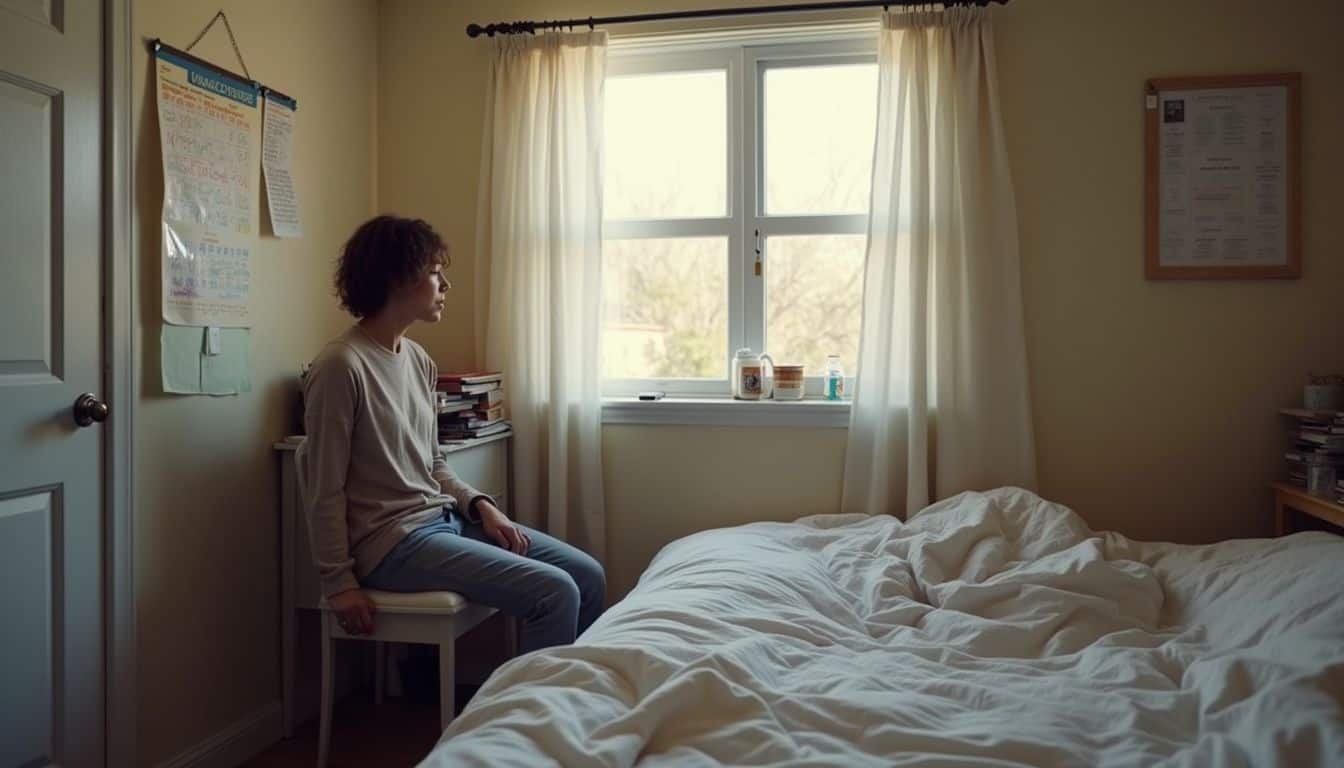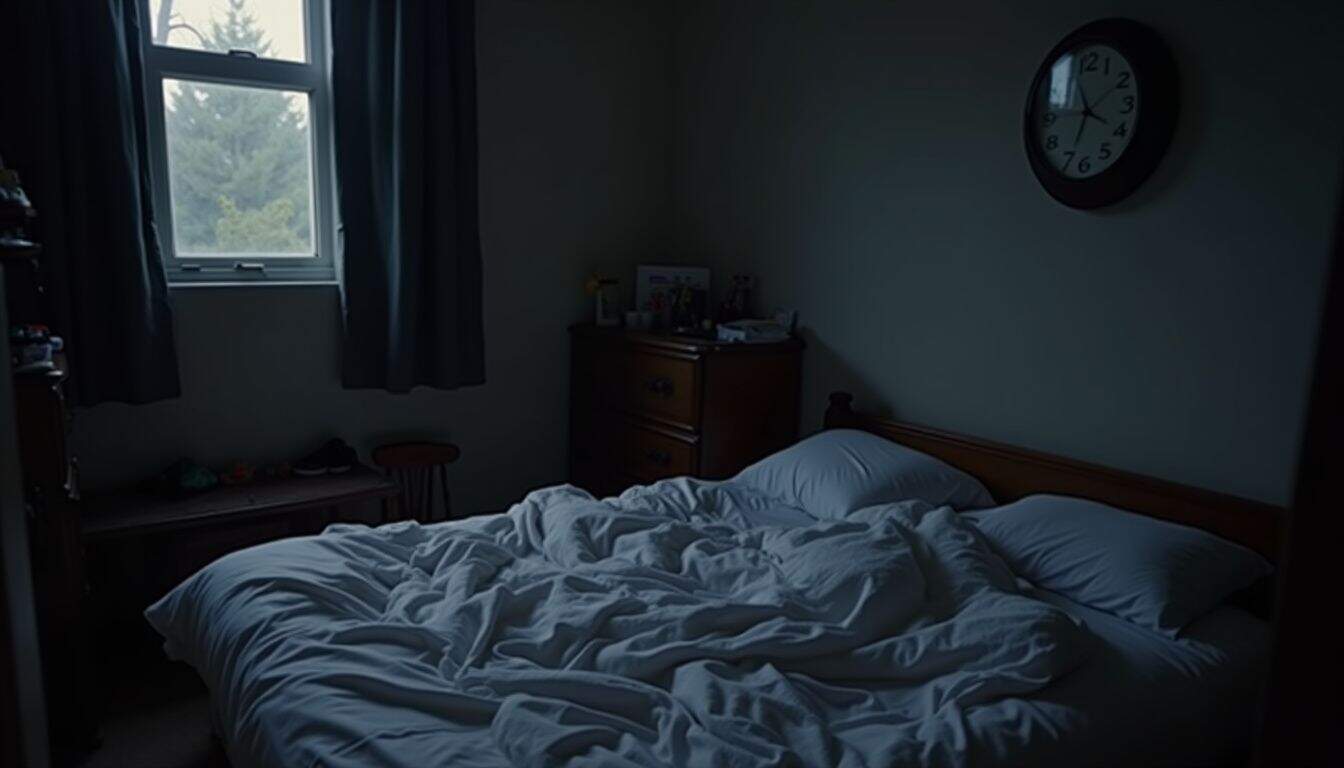Wondering how no sex affects you after a dry spell or during sexual dysfunction? About 15% of couples have not had sex in six to twelve months, and that gap can shape your mental health and physical health. Here is what shifts with sexual activity, from testosterone levels and erectile dysfunction risk to mood and relationship stress.
You will also get simple recovery tips. Think clear talks with your partner, rebuilding intimacy, plus options like online therapy or a visit to a urologist.
Stick around if you want straight answers without the awkwardness.
Key Takeaways
Men who have sex less than once a week are much more likely to report erectile dysfunction than men who are sexually active three times a week, based on research in the American Journal of Medicine (2008).
Men with 1 to 2 sexual encounters per week show higher salivary immunoglobulin A, a frontline antibody for the immune system.
Testosterone naturally falls about 1 to 2% per year after age 30. Lower sexual frequency often travels with other factors, like stress or poor sleep, that can stack the deck.
Couples in sexless stretches often report less emotional intimacy, rising doubt, and lower relationship satisfaction, sometimes by 40%.
Recovery works best with open communication, healthy daily habits, and timely help from a therapist or urologist if sexual dysfunction sticks around.
Table of Contents
Physical effects of sexual abstinence

Your body likes rhythm. Skip sex for long stretches, and small shifts can show up in hormones, blood flow, and even immunity. For those seeking to address this, options like an Edinburgh escort with a big fat ass could provide a way to reintroduce rhythm.
How does sexual abstinence affect testosterone levels?
Short breaks from sex, up to six days, usually leave testosterone steady. Some research reports a small spike around day seven without ejaculation, noted in the Journal of Zhejiang University SCIENCE B.
After 30, testosterone tends to dip 1 to 2% per year. Health habits matter a lot here. Quitting heavy drinking or drug use can support hormone balance. Men recovering from opioid use, for example, often see testosterone climb in studies from the Archives of Iranian Medicine.
Masturbation does not meaningfully change hormone ratios, so skipping it will not cause big swings. Results vary by age, sleep, diet, and activity, so your experience may differ.
Not every man gets superpowers after days or weeks without sex.
Can not having sex increase the risk of erectile dysfunction?
Long gaps in sexual activity can make erections feel less reliable. A 2008 study in the American Journal of Medicine linked higher sexual frequency with a lower risk of erectile dysfunction in men ages 50 to 70. Regular erections help blood vessels and penile tissue stay responsive.
Many men notice they feel rusty after a breakup or a dry spell. Keeping things active, even with solo sex, can support erectile function and reduce performance fears. If worry builds anyway, talk with a clinician early. Small concerns are easier to fix than long-term patterns.
Does sexual abstinence weaken the immune system?
Sex one to two times per week has been tied to higher levels of salivary immunoglobulin A, an antibody that helps guard your mouth and throat. That does not make you invincible, but it may add a little protection.
Immunity is complex, and sleep, stress, and exercise do more heavy lifting. Still, regular orgasms can relax you and may support immune balance. If you are in a dry spell, focus on basics, like good sleep, daily movement, and a diet with fruits and vegetables.
What impact does sexual abstinence have on heart health?
Studies have linked higher sexual frequency with better cardiovascular health. Men who reported sex at least twice a week had a lower risk of heart disease than men who had sex once a month, according to the American Journal of Cardiology.
Sex can also help lower blood pressure and ease stress. Think of it as one part of a heart-healthy routine along with workouts, solid sleep, and not smoking.
Psychological effects of not having sex

Dry spells can mess with your head. Stress grows, confidence dips, and moods swing harder than usual.
How does no sex increase anxiety and stress?
Sex triggers endorphins and oxytocin. Endorphins are natural pain and stress relievers, and oxytocin supports calm and closeness. Without those chemical boosts, tension often builds.
Regular sex can lower stress hormones like cortisol. During a dry spell, worries about desire, performance, or rejection can loop. Sleep gets choppy, patience runs thin, and small issues feel bigger. If that sounds familiar, you are not alone.
Can sexual abstinence lower self-esteem and confidence?
Long periods without sex can chip away at self-esteem. You might start to wonder if you are attractive or desirable. The doubts grow when abstinence is not by choice or happens inside a relationship.
One rough night with erectile dysfunction can feed shame and avoidance. Those feelings can follow you to work and the gym. Honest talk with your partner can ease pressure and stop the spiral early.
How does not having sex affect mood and emotional well-being?
Sex can act like a reset button for mood. You get those feel-good chemicals and a sense of connection. Without it, anxiety and low mood can sneak in more easily.
Research links lower sexual frequency with higher cortisol and more depressed days for some men. Orgasms also release prolactin, which supports relaxation and better sleep. If sex is off the table for now, protect your mood with exercise, sunlight, and time with friends.
Relationship impacts of sexual abstinence

When sexual intimacy fades, couples often feel it. Touch drops, tension rises, and even small fights can sting.
How does sexual abstinence reduce emotional intimacy and connection?
No sex often means less touch and fewer bonding moments. Without those, closeness can slip. Studies reported in the American Journal of Medicine link sexless marriages with lower relationship satisfaction.
Frustration and isolation can creep into daily life. Partners may stop sharing small things, which makes bigger talks even harder.
Emotional intimacy thrives where physical closeness lives.
Can not having sex decrease trust and relationship satisfaction?
Missing sex can shake trust over time. One partner may feel rejected or worry the other is losing interest. Without oxytocin from touch and orgasms, suspicion can grow faster.
Unmet sexual needs can fuel arguments or fears of cheating. The best antidote is direct conversation about desire, stress, health changes, and expectations. Couples therapy or a sex therapist can help you reset before doubt hardens into distance.
Reasons for sexual abstinence

Men pause sex for many reasons. Some are medical, some are mental, and some are personal choice.
What health conditions lead to sexual abstinence?
Certain conditions affect sex drive, erections, or both.
- Diabetes can lower testosterone and reduce blood flow, raising the risk of erectile dysfunction and lower sexual desire.
- Hypothyroidism often causes fatigue and reduced libido.
- Erectile dysfunction itself can keep sex off the table, even with medications like Viagra or Cialis.
- Prostate cancer treatments, including surgery or radiation, may harm the nerves that control erections.
- Depression drains pleasure, including sex drive. Some antidepressants can also lower libido.
- Anxiety feeds performance worries and avoidance of intimacy.
- Substance use, like alcohol misuse or other drugs, can cut desire and impair erections.
- Cardiovascular disease limits blood flow, which makes arousal and erection maintenance harder.
Mental health plays a major role too, and those effects on sexual activity can be strong.
How do mental health challenges affect sexual activity?
Mind and body are linked. When your mood is off, sex often is too.
- Performance anxiety can lead to erectile dysfunction or premature ejaculation, which makes sex feel stressful.
- Depression often causes low sex drive that can last for months without treatment.
- High stress raises cortisol. That hormone can lower testosterone and blunt libido.
- Untreated mental health issues are tied to more sexual dysfunction than issues that receive care.
- Alcohol abuse used for coping hurts erections and relationship satisfaction.
- Therapy or medication can reduce symptoms and help you stay engaged sexually.
- Talking openly with a partner supports trust and brings sexual desire back faster.
Understanding this link makes it easier to protect both your mood and your sex life.
Why do some choose sexual abstinence for lifestyle or personal reasons?
Sometimes you choose a break. That can be smart and healthy.
- Focusing on work or school can be easier without sexual distractions.
- Pausing sex reduces worries about pregnancy and STIs. Regular STD testing becomes simpler to plan.
- Setting clear boundaries that match your values builds confidence.
- Skipping dates and late rides can save money.
- After a breakup or a rough patch, a break can help you heal and reset intimacy.
- During recovery from substance use, avoiding risky sexual situations may protect progress.
- If sex increases anxiety or obsessive thoughts, stepping back can steady your mind.
Your reasons are valid. The key is being honest with yourself and, if you are partnered, with your partner.
Can sexual desire be recovered?
Worried your sexual desire is gone for good? It is rarely permanent. With honest talks and the right support, most men can find their way back, including exploring sex with a British escort in London.
Why is open communication important for recovering sexual desire?
Talking openly builds trust and closeness, which often reignites desire. Couples who share needs and boundaries tend to report higher satisfaction.
Clear talk about decreased libido, stress, health changes, and meds keeps small problems from becoming big ones. Strong sexual self-disclosure, sharing what you like and fear, protects relationships from ongoing dissatisfaction and some forms of sexual dysfunction.
Many therapists advise routine check-ins about stress relief, sleep, and performance worries, including side effects from medicines like vardenafil or revatio. For easy ideas, see how to spice things up in the bedroom.
How can therapy and counseling help restore sexual desire?
Therapy gives you a private, practical space to work on sex and connection.
- It helps you say the quiet part out loud, like low libido or fear of rejection.
- Individual sessions can untangle negative beliefs about sex built over years.
- Couples counseling creates a safe place to discuss physical intimacy and unmet needs.
- Cognitive Behavioral Therapy can reduce performance anxiety. It can also support treatment alongside meds like Levitra when prescribed.
- Online therapy makes getting help easier and less awkward.
- Therapists coach you on rebuilding self-esteem if erectile dysfunction or hypoactive sexual desire lowered your confidence.
- Sex therapy identifies triggers, like stress at work, substance use, or relationship problems.
- Experts can suggest healthy masturbation habits and stress tools that lift mood.
- If low desire lasts, a clinician can check for medical issues, such as low testosterone or heart risk.
- Guided plans rebuild emotional bonding along with physical intimacy, or you might consider the beautiful escorts of Dublin for additional perspectives.
Want more ideas for self-knowledge? Try How to figure out what you like sexually.
How will sexual abstinence and its effects evolve in 2025?
Tech shapes how men talk about sexual health. Social posts and apps highlight dry spells, NoFap streaks, and stories about months without sex.
Some men report mental clarity with voluntary abstinence. Others describe frustration when desire drops with age. Data from the Massachusetts Male Aging Study still helps frame the trend. Between ages 65 and 74, about 28% of men report less desire; after 75, it nears 39%.
For many men, abstaining does not cause erectile dysfunction or heart disease by itself. Habits, sleep, mood, and medical conditions carry more weight. Some studies suggest links between ejaculation patterns and semen volume, but findings are mixed.
Plenty of men feel better with fewer porn-fueled sessions. Plenty do fine with regular solo sex. If abstinence is not your choice and you feel stuck, online groups and talk therapy can help you sort worry, low confidence, or performance anxiety.
Doctors today see past myths and focus on your whole health. One practical rule cuts through noise. Open communication beats counting how many times you should have sex each week. If you are new to intimacy, this guide helps: Preparing for first-time sex.
Bottom line, sexual activity is only one part of feeling well. If you have chest pain, lasting erection problems, a sudden drop in sexual desire, or symptoms of depression, get medical care. This article is educational, not personal medical advice.
People Also Ask
How does sexual abstinence affect a man’s mental health and stress levels?
Going without sexual activity can raise psychological distress and increase stress. Physical intimacy often acts as a natural stress relief, so missing out may leave some men feeling tense or anxious.
Can no sex impact testosterone levels or cause erectile dysfunction?
A long dry spell might lower testosterone levels for some men, which could lead to issues like erectile dysfunction or reduced sexual desire. Regular sexual frequency helps maintain healthy hormone balance.
Does not having sex change relationship satisfaction or emotional bonding?
Lack of physical intimacy can weaken emotional bonds between partners and reduce relationship satisfaction over time. Sexual intimacy often deepens trust and keeps couples in love connected.
Are there any effects on the immune system or risk of diseases like heart disease?
Sexual activity may boost the immune system and support cardiovascular health according to studies in the American Journal of Medicine; skipping it could mean missing these health benefits.
Could avoiding sex influence prostate cancer risk or ejaculation frequency concerns?
Some research links frequent ejaculation with lower prostate cancer risk, so less sexual activity might remove this possible benefit for men’s reproductive health.
What are recovery tips if someone faces sexual problems after abstaining from sex?
If you notice changes such as performance anxiety, low libido, or other sexual dysfunctions after a period without sex, try open communication with your partner first; consider masturbation to restore comfort; seek help from professionals if needed; address substance use that affects performance; focus on rebuilding both physical closeness and emotional connection step by step.
References
https://www.medicalnewstoday.com/articles/325418
https://www.medicalnewstoday.com/articles/326518
https://my.clevelandclinic.org/health/diseases/10035-erectile-dysfunction
https://pmc.ncbi.nlm.nih.gov/articles/PMC8446874/
https://www.webmd.com/sex/ss/slideshow-effects-stop-sex (2025-02-21)
https://www.savantcare.com/blog/impact-of-sexual-withholding-on-relationships/ (2023-08-29)
https://ro.co/health-guide/side-effects-not-having-sex-man/ (2025-06-19)
https://pmc.ncbi.nlm.nih.gov/articles/PMC2868060/
https://www.webmd.com/sex/the-psychological-benefits-of-celibacy (2024-07-19)
https://pmc.ncbi.nlm.nih.gov/articles/PMC6699928/
https://www.medicalnewstoday.com/articles/323918
https://my.clevelandclinic.org/health/diseases/15216-low-libido-low-sex-drive

